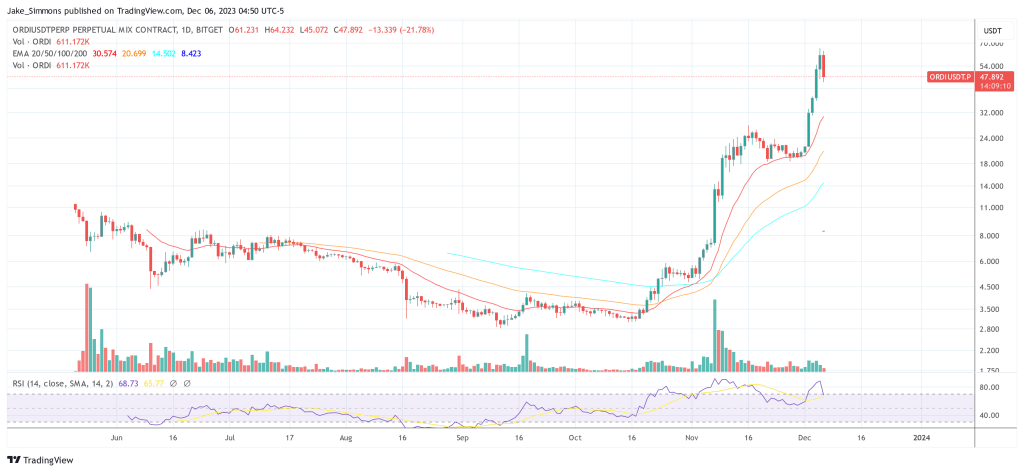Bitcoin developer Luke Dashjr raised concerns today about an alleged vulnerability in the BTC Core software, drawing attention to an issue that could impact the blockchain’s integrity. In a post on X (formerly Twitter), Dashjr outlined how Inscriptions are exploiting a vulnerability by bypassing limits on extra data in transactions, sparking diverse reactions within the cryptocurrency sector.
Bitcoin Dev Implements Ordinals Spam Filter
Dashjr, one of the world’s most prolific BTC developers, expressed his concerns through a post on X (formerly Twitter), emphasizing the severity of the issue. He stated, “PSA: ‘Inscriptions’ are exploiting a vulnerability in Bitcoin Core to spam the blockchain. Bitcoin Core has, since 2013, allowed users to set a limit on the size of extra data in transactions they relay or mine (-datacarriersize). By obfuscating their data as program code, Inscriptions bypass this limit.”
Dashjr further explained the efforts made to address this issue in his own Bitcoin Knots version, highlighting the challenges he faced: “This bug was recently fixed in Knots v25.1. It took longer than usual due to my workflow being severely disrupted at the end of last year (v24 was skipped entirely). Bitcoin Core is still vulnerable in the upcoming v26 release. I can only hope it will finally get fixed before v27 next year.”
Ocean Mining, a company founded by Dashjr, echoed his sentiments, announcing the integration of the latest Bitcoin Knots version. “We are happy to announce testing of Knots v25.1 has completed successfully, and is now deployed to production. Among other improvements, this upgrade fixes this long-standing vulnerability exploited by modern spammers. Our blocks will now include many more real transactions and help to bring an end to the DoS attack being performed on the network.”
Notably, Luke Dashjr already warned about Inscriptions seven months ago when he called for the implementation of a spam filter, Bitcoinist reported. According to him, a mistake was made in the software because the existing filters were not extended to Taproot transactions, he argued in an email. He added that “spam filtering has been a standard part of Bitcoin Core since day 1.”
The End Of Ordinals And ORDI?
A user’s query about the implications of fixing this bug led Dashjr to confirm, “Correct”, implying that resolving this vulnerability would diminish the existence of Ordinals and BRC-20 tokens. However, he faced skepticism from others who suggested that miners would prioritize inscription transactions for economic reasons. Thus, Ordinals will only cease to exist when all miners and pools agree on that.
To this, Dashjr responded, “Bitcoin works with the assumption that a majority of miners are honest, not malicious. Besides, spam-filtered blocks often have more fees anyway for some reason.”
Shenyu, the co-founder of f2pool, provided a contrasting view to Dashjr, reminding everyone that “Bitcoin is not Ethereum, and developers do not have full decision-making power.”
Shenyu is alluding to the fact that Bitcoin developers can make suggestions for code changes, but these must be approved by the network. Therefore, there is currently little chance that Dashjr will be successful with his initiative.
At press time, ORDI was trading at $48.01 after the price plummeted by -30% following Dashjr’s post on X.

Featured image from Observatorio Blockchain, chart from TradingView.com











